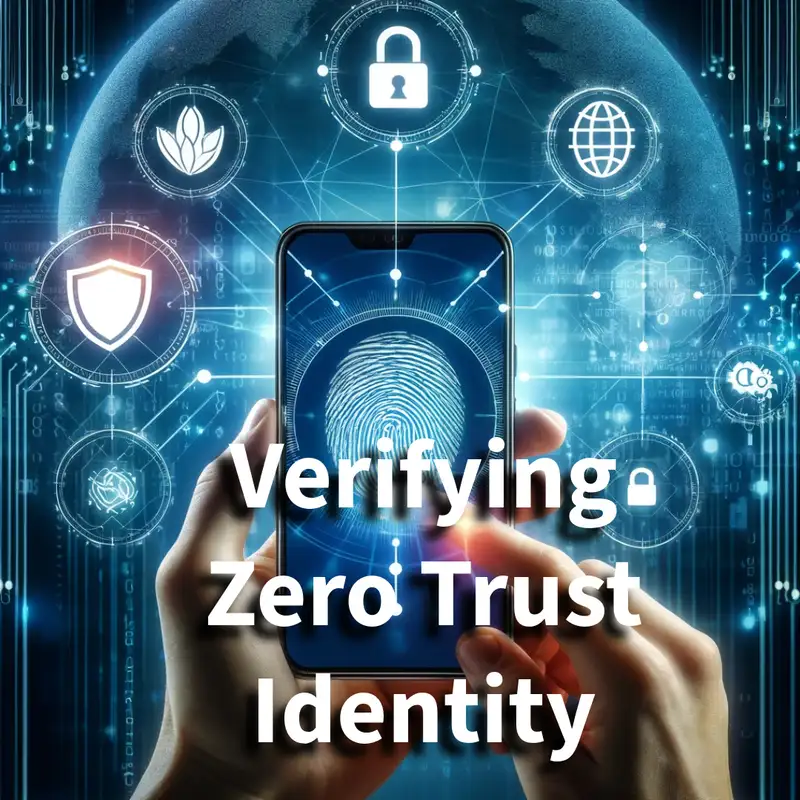#223 Verifying Zero Trust Identify
In today's highly digital age, the concept of identity is evolving rapidly, with profound implications for individuals, businesses, and government entities alike. Understanding the nuances of digital identity and verification processes is crucial, especially as more interactions shift online. Various challenges arise, as seen during the pandemic when many faced significant barriers in accessing essential services due to inadequate identity verification mechanisms. This blog post explores the intricate landscape of digital identity, its relevance in today's world, and how organizations can effectively navigate these challenges.
Thanks to my sponsor: Nasuni - https://bit.ly/4e5W8am
Understanding Digital Identity and Its Importance
Digital identity refers to the online representation of an individual or entity, encompassing multiple attributes such as personal information, usernames, and behavioral patterns. With the expansion of the internet, each person often possesses numerous digital identities; for example, social media accounts, email addresses, and online service logins. This fragmentation can complicate the process of identity verification, which is vital for providing secure services and preventing fraud.
Identity is far more than just a username or password. It's an intricate web of personal data that institutions need to validate ownership and authenticity. Mismanagement and exploitation of this data can lead to severe consequences, including identity theft and financial loss. To navigate this complex landscape, organizations must adopt a comprehensive approach to identity verification, which includes understanding various identities across platforms and how they interact within broader systems.
The Challenges of Verification in a Digital World
The shift to online services during the pandemic starkly exposed the vulnerabilities in traditional identity verification methods. Many individuals faced significant difficulties when attempting to access government benefits or healthcare services, often facing frustrating delays or outright denials because their identities could not be verified. This issue highlights a critical gap in the systems designed to ensure that services are delivered effectively and securely.
One pressing challenge is the proliferation of fraudulent activities, which exploit weak verification processes. With countless accounts created each day, the risk of identity fraud is ever-present. Adopting a "Zero Trust" framework, where every transaction is treated as untrusted until verified, has become a strategic priority for organizations. This means continuously assessing and verifying identities even after initial authentication, ensuring that access to sensitive information is tightly controlled.
Leveraging Technology for Enhanced Identity Management
To address these challenges, technology plays a pivotal role in modern identity verification. Emerging solutions leverage artificial intelligence and machine learning to analyze user behavior, draw meaningful insights, and identify anomalies that may signify fraud. By creating dynamic models that evolve based on real-time data, organizations can enhance their identification processes, ensuring they remain robust in the face of ever-evolving threats.
Moreover, adopting advanced verification methods can help create a more inclusive system. By incorporating diverse data points beyond traditional credit histories, organizations can cater to underserved populations who lack established identities. This approach not only fosters trust but also enables equitable access to services, ensuring that individuals who have historically been marginalized are included in the digital landscape.
Moving Forward: Best Practices for Managing Digital Identity
To navigate the complexities of digital identity effectively, organizations should consider implementing the following best practices:
1. **Adopt a Continuous Verification Approach:** Regularly reassess user identities to ensure they remain authentic, adapting to evolving risks and threats.
2. **Leverage Advanced Technologies:** Utilize AI and machine learning to analyze user data patterns for better fraud detection and verification capabilities.
3. **Foster Inclusivity:** Ensure that verification processes are accessible to all individuals, employing diverse metrics that accurately reflect varied identity experiences.
4. **Ensure Transparency:** Provide insights into how verification decisions are made, enabling individuals and organizations to understand and trust the systems in place.
Digital identity management is undoubtedly a complex and evolving field, but by adopting innovative solutions and understanding the challenges at hand, organizations can better navigate this landscape. With a commitment to security and inclusivity, it is possible to establish a more resilient digital identity verification ecosystem.
---
If you're fascinated by the future of digital identity and want to stay informed on this topic, don’t hesitate to share your thoughts below or engage in the conversation on social media. Let’s embrace the digital transformation together!
```

